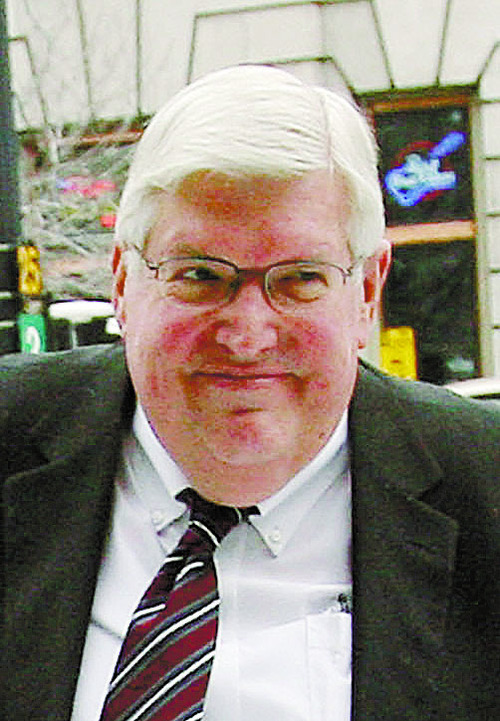This is an archived article that was published on sltrib.com in 2013, and information in the article may be outdated. It is provided only for personal research purposes and may not be reprinted.
The 10th Circuit Court of Appeals in Denver has upheld the conviction of a Brigham City physician who unlawfully prescribed pain medication that resulted in the death of one man in 2006, but sent the case back to a Utah federal court judge to clarify the sentence he gave the defendant.
The court rejected arguments by Dewey C. MacKay that there was insufficient evidence to hold him responsible for the death of David L. Wirick. It also denied his claims that certain jury instructions were flawed, that U.S. District Court Judge Dee Benson had erred in allowing a potentially prejudicial exhibit and testimony of one expert witness because he had not challenged those issues at his trial.
Regarding the exhibit — two charts, one of which showed MacKay wrote the largest number of hydrocone prescriptions in Utah between 2005 and 2008 and was ranked third in 2009 — the court said: "The government had to prove the defendant stepped outside his role as a doctor and became a criminal drug pusher. The charts certainly painted a picture of the defendant's practice as a pain management physician."
MacKay also challenged the legality of his 20-year sentence, which Benson set at a "general" 20-year term — the mandatory minimum penalty for the count of unlawfully prescribing oxycodone — without specifying individual sentences for each of the other offenses. The appeals court directed Benson to clarify his sentence because it is "unclear" whether the district court intended to impose a 240-month sentence on each count, which would be a "clearly illegal sentence."
MacKay, 65, was indicted in August 2010 on dozens of charges related to prescribing more than 1.9 million hydrocodone pills and nearly 1.6 million oxycodone pills between June 1, 2005, and Oct. 30, 2009, including one prescription that resulted in Wirick's death.
Jurors convicted the physician on Aug. 18, 2011, following a four-week trial on two counts of distribution of a controlled substance resulting in death, three counts of use of a communication facility in a drug trafficking offense, and 35 counts of distribution of a controlled substance. The doctor was acquitted of 44 other distribution counts.
Prosecutors alleged MacKay prescribed excessive, inappropriate quantities and combinations of hydrocodone and oxycodone without taking adequate reason or proper review of patients. In Wirick's case, MacKay had agreed to have him on a "Do Not See" list following an overdose but, then issued the 55-year-old prescriptions for the two drugs. Three days later, Wirick died, the result of the drugs according to trial experts.
The appeals court said there was sufficient evidence for the jury to conclude that MacKay had "stepped outside his role as a phyisican" in that case.
Before MacKay's sentence, Benson received several letters vouching forMacKay's character, including from Rep. Rob Bishop, R-Utah, and Utah State Senate Majority Assistant Whip Peter C. Knudson, R-Brigham City.
While Benson considered dismissing the case before sentencing, the judge eventually gave MacKay in December 2011 a mandatory minimum sentence of 20 years in prison. After months of legal wrangling while his attorneys tried to keep him out of prison during the appeals process, MacKay was finally ordered to report to a low-security federal prison in California in May 2012.
Tribune reporter Kimball Benson contributed to this story.



